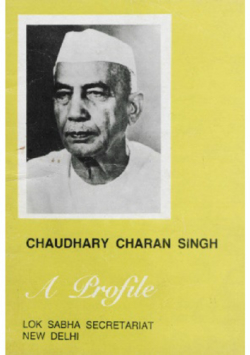"Chaudhary Charan Singh: A Profile" eschews the traditional biographical format, instead offering a meticulously researched examination of this pivotal figure in Indian politics. The text delves deeper than a mere chronology, presenting a nuanced exploration of Singh's life, ideology, and lasting influence.
The book establishes the foundation for understanding Singh by examining his formative years on a farm in Uttar Pradesh. This rural background becomes the cornerstone of his political philosophy, shaping his unwavering commitment to improving the lives of farmers. Singh's educational pursuits and initial steps into politics are then explored, setting the stage for his future trajectory.
The narrative subsequently shifts focus to a detailed analysis of Singh's political career. We observe his early affiliation with the Indian National Congress and his subsequent rise through the party ranks. However, the book doesn't shy away from dissecting the ideological fault lines that emerged. Singh's strong advocacy for farmers and rural development created friction with the party leadership. These disagreements are meticulously examined, highlighting the fundamental differences between his vision and the prevailing political currents.
A substantial portion of the book is dedicated to Singh's most significant contributions. His tenure as Chief Minister of Uttar Pradesh and later as a Union Minister is explored in detail, emphasising the land reform policies he championed. These reforms, presented as his signature legislative achievements, aimed to empower farmers and achieve a more equitable distribution of land.
Singh's brief but consequential term as Prime Minister is also given due consideration. The book acknowledges the challenging political landscape he faced, characterised by complex coalition politics and a difficult economic climate. Despite the brevity of his tenure, the narrative portrays Singh's leadership as a period marked by unwavering commitment to his principles and a steadfast vision for India.
The concluding section of the book transcends mere biography, evolving into a profound analysis of Singh's lasting impact. It explores how his legacy continues to influence subsequent political movements focused on agrarian reforms and rural development. We see how his policies and vision continue to resonate in the present, particularly among political groups centred on farmer welfare.
"Chaudhary Charan Singh: A Profile" surpasses the limitations of a chronicle. It is a scholarly examination, offering a comprehensive analysis of Singh's life, ideology, and enduring legacy. The book serves as a valuable resource for those seeking a deeper understanding of this influential figure and his contributions to Indian society.


